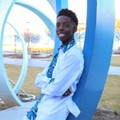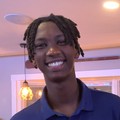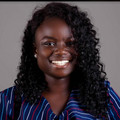Dr. Soronnadi Nnaji Legacy Scholarship
Dr. Soronnadi Nnaji was born in Zaria, Kaduna and raised in Owerri, Nigeria. Excelling in education has been a priority for Dr. Nnaji since elementary school. He attended St. George Elementary School in Zaria and graduated in the top 10% of his class. Then, he enrolled in St. Paul’s Secondary School where he graduated with first class honors. Afterwards, he received a BS in Agricultural Engineering from Israel Institute of Technology, a MS in Agricultural Engineering and MS in Civil Engineering from the University of Hawaii, and a PhD in Hydrology and Water Resources from the University of Arizona.
As a father, uncle, mentor, educator, and community leader, Dr. Soronnadi Nnaji always demonstrated a strong love for his community, commitment to education, and his deep pride in Nigerian culture.
The Dr. Soronnadi Nnaji Legacy Scholarship Fund aims to assist first and second-generation African immigrant students who embody the spirit and dedication exemplified by Dr. Soronnadi Nnaji, enabling them to make a positive impact on their communities and beyond.
Any high school senior or current undergraduate student at a two or four-year institution who is a first or second generation African immigrant, majoring in a STEM related major and has at least a 3.0 GPA may apply for this scholarship. Students who have a strong record of volunteerism in their communities and/or are actively involved in African student associations at their school are strongly preferred.
To apply, tell us how you serve your community, how your background as a first or second generation African immigrant has impacted your educational journey thus far and how receiving this scholarship will impact your education and STEM career.
How have you contributed to your community, including what initiatives or projects have you been a part of and their impacts? Reflect on your cultural heritage as a first or second-generation African immigrant. How has your cultural background shaped your educational experiences, values, and goals? Explain how receiving the Dr. Soronnadi Nnaji Legacy Scholarship would impact your education and STEM career.
Winners and Finalists
August 2025
Winning Application


Explore All Kinds of Scholarships for All Kinds of Students
FAQ
The application deadline is Jul 12, 2025. Winners will be announced on Aug 12, 2025.
Your privacy is a top priority on the Bold.org platform, and you can find our privacy policy in full here. You may opt out of communications from Bold.org at any time, and unless we’ve first notified you and gotten your consent, you’ll never receive communication from any third parties related to personal information you give us.
Award amounts per winner are designated by the donor. Check the award amount for a detailed breakdown.
The winner will be publicly announced on Aug 12, 2025. Prior to the announcement date, we may contact finalists with additional questions about their application. We will work with donors to review all applications according to the scholarship criteria. Winners will be chosen based on the merit of their application.
Award checks will be sent to the financial aid office of the winner's academic institution or future academic institution in their name to be applied to their tuition, and in the name of their institution (depending on the school's requirements). If the award is for a qualified educational non-tuition expense, we will work with the winner directly to distribute the award and make sure it goes towards qualified expenses.
Before we award the scholarship, the winner will be required to confirm their academic enrollment status. Depending on the circumstances, verification of Student ID and/or their most recent transcript will be required.
If you have any questions about this scholarship or the Bold.org platform, just email contact@bold.org and we’ll get back to you as quickly as we can.
Yes. The terms and conditions for this scholarship can be found here.




